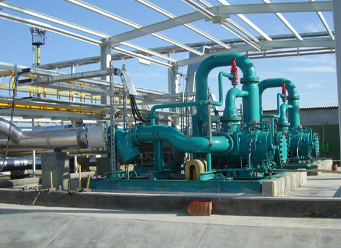Malgashi
- Afrikaans
- Albanian
- Amharic
- Arabic
- Armenian
- Azerbaijani
- Basque
- Belarusian
- Bengali
- Bosnian
- Bulgarian
- Catalan
- Cebuano
- Corsican
- Croatian
- Czech
- Danish
- Dutch
- English
- Esperanto
- Estonian
- Finnish
- French
- Frisian
- Galician
- Georgian
- German
- Greek
- Gujarati
- Haitian Creole
- hausa
- hawaiian
- Hebrew
- Hindi
- Miao
- Hungarian
- Icelandic
- igbo
- Indonesian
- irish
- Italian
- Japanese
- Javanese
- Kannada
- kazakh
- Khmer
- Rwandese
- Korean
- Kurdish
- Kyrgyz
- Lao
- Latin
- Latvian
- Lithuanian
- Luxembourgish
- Macedonian
- Malgashi
- Malay
- Malayalam
- Maltese
- Maori
- Marathi
- Mongolian
- Myanmar
- Nepali
- Norwegian
- Norwegian
- Occitan
- Pashto
- Persian
- Polish
- Portuguese
- Punjabi
- Romanian
- Russian
- Samoan
- Scottish Gaelic
- Serbian
- Sesotho
- Shona
- Sindhi
- Sinhala
- Slovak
- Slovenian
- Somali
- Spanish
- Sundanese
- Swahili
- Swedish
- Tagalog
- Tajik
- Tamil
- Tatar
- Telugu
- Thai
- Turkish
- Turkmen
- Ukrainian
- Urdu
- Uighur
- Uzbek
- Vietnamese
- Welsh
- Bantu
- Yiddish
- Yoruba
- Zulu
Telephone: +86 13120555503
Email: frank@cypump.com
Sep . 15, 2024 13:15 Back to list
Submergable Pumps - Efficient Solutions for Water Management
Understanding Submersible Pumps A Comprehensive Overview
Submersible pumps play a crucial role in various industries and applications, serving as an effective solution for moving fluids from one point to another. As the name suggests, submersible pumps are designed to operate while fully submerged in the liquid they are pumping. This article explores the functionality, types, benefits, and applications of submersible pumps, highlighting their importance in today’s world.
Functionality of Submersible Pumps
Submersible pumps are typically electric-powered and are sealed to prevent fluid intrusion. The pump consists of a motor, impeller, and other essential components that work together to create a vacuum that draws the fluid into the pump and then pushes it out through a discharge line. The design allows for efficient operation, as the pump is located directly in the fluid, minimizing the need for suction and reducing the risk of cavitation—a phenomenon that can damage pumps by causing pressure changes in liquids.
Types of Submersible Pumps
There are various types of submersible pumps tailored for specific applications
. The most common include1. Sewage Pumps Designed to handle wastewater and sewage, these pumps are built with robust materials to handle solids and debris effectively.
2. Dewatering Pumps Used for removing excess water from construction sites, basements, or mines, dewatering pumps are critical in flood management and site preparation.
submergable pump

3. Well Pumps These are used to extract water from deep underground wells, making them essential for irrigation and domestic water supply in rural areas.
4. Chemical Pumps Specifically designed to handle corrosive fluids, these pumps are often used in chemical processing industries.
Benefits of Submersible Pumps
One major advantage of submersible pumps is their energy efficiency. Since they are submerged, they require less energy to operate, which can lead to significant savings in power costs. Additionally, submersible pumps are known for their durability and longevity due to their robust construction and ability to handle challenging conditions such as high-pressure environments and abrasive materials.
Applications of Submersible Pumps
Submersible pumps find applications across diverse sectors, including
- Agriculture For irrigation and drainage purposes. - Construction Used for dewatering sites to maintain a dry working environment. - Residential Homeowners often utilize them for basements and sump pits to avoid flooding. - Municipal Services Used in sewage treatment plants to move wastewater efficiently.
In conclusion, submersible pumps are an integral part of modern fluid management, providing reliability and efficiency in various applications. Their capability to operate underwater while effectively moving liquids makes them indispensable in both industrial and residential settings. As technology advances, the design and efficiency of submersible pumps continue to improve, ensuring they meet the ever-evolving needs of fluid management.
-
Horizontal Split Case Pump with GPT-4 Turbo | High Efficiency
NewsAug.01,2025
-
ISG Series Pipeline Pump - Chi Yuan Pumps | High Efficiency, Durable Design
NewsAug.01,2025
-
Advanced Flue Gas Desulfurization Pump with GPT-4 Turbo | Durable & Efficient
NewsJul.31,2025
-
ISG Series Vertical Pipeline Pump - Chi Yuan Pumps | Advanced Hydraulic Design&Durable Construction
NewsJul.31,2025
-
ISG Series Vertical Pipeline Pump - Chi Yuan Pumps | Energy Efficient & Low Noise
NewsJul.31,2025
-
pipeline pump - Chi Yuan Pumps Co., LTD.|High Efficiency&Low Noise
NewsJul.31,2025










